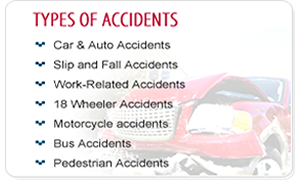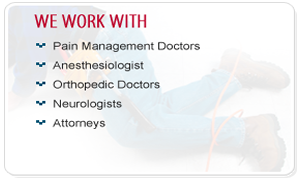-
Dallas
(214) 339-9111 -
Fort Worth
(817) 834-7422 -
Arlington
(817) 274-9111 -
Mesquite
(972) 279-9111 -
Desoto
(972) 223-9111



FAQs
1. Do I have to stop after an auto accident?
Every driver must stop after a car accident; this is the law. Anytime you hit another car, pedestrian or property, then you must stop. If you do not, you will be charged with a hit and run even if the accident was not your fault. Hit and run penalties are serious and can involve a monetary fine, jail or both. Some even lose their license.
At the scene, you must exchange your name, address, license number, vehicle number plates and car insurance with the other driver. If you have any insurance, then the policy number must be written down for the other party.
If you have hit a parked car and can’t find the driver, the law says you can leave as long as you leave behind your name, address and explanation of what happened. Moreover, you must also notify police either by telephone or in person.
If there has been any death or injury, then you must call law enforcement. The officer will conduct an investigation and file a report. If an officer fails to show up, make a report yourself, take pictures if possible and go to the police station to report the incident.
2. What if someone is injured?
The law always states safety first. Reasonable assistance is given to all who are injured in a car accident. For example if you know how to administer first aid or need to drive the person to the hospital, then do so. But wait a few minutes for the ambulance to arrive. If you are not trained to do provide first aid, just stay calm and wait. To prevent additional car accidents, warn other motorist, switch on your hazard lights or place flares on the road. Ask nearby passersby to call for help and don’t panic.
3. Whom should I call for help?
911 should be the first number to call. Explain the situation, location and ask for an ambulance or fire engine if you need one.
4. What type of information should I collect at the accident scene?
In addition to the other driver’s name and vehicle registration, additional information to retain include:
5. Should I see a doctor after a car accident?
In most cases, a visit to the doctor is best case scenario for both you and your passengers. Injuries can be present even if you are not in pain. Furthermore, if injuries develop later and a physician has not been consulted, the other party can use that against you in court. Visit a doctor (MD / DC) or to an emergency department and obtain a copy of the report. In many cases, your car insurance policy may cover some of the medical bills.
6. Do I have to report the car accident?
Yes. Any major damage must be reported to the police. The accident must be reported to the Department of Motor Vehicles and if there was a fatality or injury as a result of the car accident. Also you need to report
7. Who will pay for the damages after a car accident?
In general, the driver at fault is responsible for all the payments. There are two principle types of car insurances- liability and collision.
Liability: If you are at fault for the accident, your liability insurance will ensure payment for the other driver’s property damage and personal injuries as per your policy limits. If you are not at fault, the other driver’s liability insurance will pay personal injuries and car damages up to the policy limits.
If both you and the other driver were involved in car damage and sustained personal injuries, then both of you are partly responsible for the auto accident. Depending on the circumstances, both drivers may receive some money for your damages. The amount collected will depend on polices (or assets if the other party has no insurance), degree of damage and to what degree each one of you was at fault.
If you loan your car and this results in an accident, your insurance company may pay for damages depending on whose fault it was.
Collision: When you have collision coverage, you are covered no matter who is at fault. However, collision only pays for car damages and does not cover any medical expenses. Other subcategories of insurance policy coverage include supplementary health insurance. This coverage may cover medical bills for both you and your passenger(s) up to the limits mentioned in the policy.
8. What steps I should take if the other party has no car insurance?
In many cases, if the other driver was not uninsured your car insurance will cover some of the costs for your personal injuries- that is if you had a prior policy covering an uninsured driver or medical injury coverage.
In some cases, the other driver’s policy may not be enough to cover all your expenses and then the difference will be paid by your own insurance as long as you had an uninsured coverage in your policy.
If you did not have any of these polices, then you may have to sue the other driver to pay for your personal injuries. However, even if you win such a case, it is difficult to collect money if the other party has no money/assets or is bankrupt. If you do have collision coverage in your policy, then it will pay for the damage to your car no matter who was at fault.
9. What should I do if I get sued after a car accident?
If you are sued, contact your insurance company. If you have a lawyer, speak to him/her right away. In most cases, your insurance company will assign a lawyer to your case. However, if the lawsuit is for more money than the coverage of your insurance policy, then you may need to speak to an attorney.
10. How do I make a claim with my insurance company?
After the accident, contact your insurance company. The agent will get the information and start the process of compensation. The amount of compensation will depend on the extent of your injuries, damage to the car or any other personal property that was in the car. In addition, you may also be allowed to collect for lost time at work, doctor visits or additional medical care. Moreover, you may also be able to collect long term disability for any pain and suffering. In most cases, your insurance company will contact the other insurance company and begin negotiations. Because of statute of limitations, lawsuits must be filed early.
The following FAQs are only designed to provide general information when you get involved in a car accident. These statements are not meant as concrete advice or steps that you should undertake when involved in a car accident. For legal advice, seek the assistance of an auto accident attorney.

